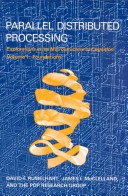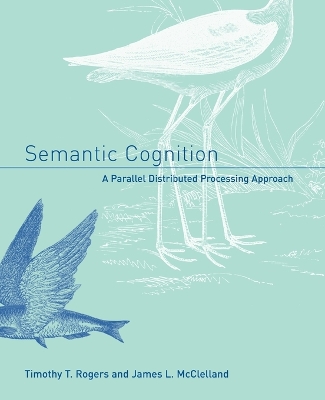Bradford Books
2 total works
Parallel Distributed Processing
by David E. Rumelhart and James L. McClelland
The authors' theory assumes the mind is composed of a great number of elementary units connected in a neural network. Mental processes are interactions between these units which excite and inhibit each other in parallel rather than sequential operations. In this context, knowledge can no longer be thought of as stored in localized structures; instead, it consists of the connections between pairs of units that are distributed throughout the network.
Volume 1 lays the foundations of this exciting theory of parallel distributed processing, while Volume 2 applies it to a number of specific issues in cognitive science and neuroscience, with chapters describing models of aspects of perception, memory, language, and thought.
This groundbreaking monograph offers a mechanistic theory of the representation and use of semantic knowledge, integrating the strengths and overcoming many of the weaknesses of hierarchical, categorization-based approaches, similarity-based approaches, and the approach often called "theory theory." Building on earlier models by Geoffrey Hinton in the 1980s and David Rumelhart in the early 1990s, the authors propose that performance in semantic tasks arises through the propagation of graded signals in a system of interconnected processing units. The representations used in performing these tasks are patterns of activation across units, governed by weighted connections among them. Semantic knowledge is acquired through the gradual adjustment of the strengths of these connections in the course of day-to-day experience.
The authors show how a simple computational model proposed by Rumelhart exhibits a progressive differentiation of conceptual knowledge, paralleling aspects of cognitive development seen in the work of Frank Keil and Jean Mandler. The authors extend the model to address aspects of conceptual knowledge acquisition in infancy, disintegration of conceptual knowledge in dementia, "basic-level" effects and their interaction with expertise, and many findings introduced to support the idea that semantic cognition is guided by naive, domain-specific theories.

